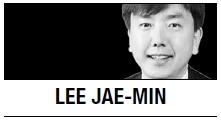To many, Seoul has been known as a paradise of public transportation. Its clean and fast subway system gets you to anywhere you want in virtually every corner of the city. The bus stops are equipped with digital signboards that tell you the estimated time of arrival of all buses using exclusive bus lanes. Taxis are cheap and readily available at the curbside. One transportation card works everywhere. The Passenger Transport Service Act and Urban Railroad Act enshrine the sanctity of public transportation in the lives of Seoulites.

The remaining hole of public transportation in Seoul is filled by a unique system of “paid surrogate drivers.” A common scene toward the end of a dinner gathering in Seoul is people taking out their smartphones to call surrogate driving companies. In just a couple of minutes, a designated driver calls back and the meeting location is then explained. In another 10 minutes, the driver arrives at the location. He then drives your car home with you sitting in the backseat. In Seoul, the average fee is merely between 10,000 won to 15,000 won, sometimes cheaper than the taxi fare.
The solid public transportation fortress in Seoul has just encountered the first wave of “Uber” penetration, a digitalized ridesharing service provider using smartphone applications. The San Francisco-based venture company’s business model has opened up a can of worms of legal issues throughout the world since its inception in 2010. Taxi drivers are claiming that Uber is illegally taking away passengers from them, to which Uber counters that all it does is connect people ― someone willing to purchase transport services and someone willing to provide it ― via smartphone apps. For the last two years controversies and regulatory sanctions have consumed many municipalities and taxi trade associations in the United States and Europe. Decisions of these municipalities all vary with their distinct situations.
The regulatory battle over Uber has finally arrived in this country. The venture corporation started its service in Seoul in August 2013, and the business has been taking off recently. Having seen the increasing presence of the unheard-of business, 10 days ago the city government of Seoul issued a stern warning to the corporation’s Korean branch with a series of possible regulatory sanctions. The city government views the service as violating said Passenger Transport Service Act, which prohibits any unauthorized person from engaging in paying transport service activities. Uber is certainly not authorized under the act.
In its July 21 press release, the city government refers to “consumer protection” as its main rationale for blocking the service in the city. Needless to say, as far as a municipality such as the Seoul City Government is concerned, none could top the importance of ensuring consumer protection. Considering the widespread and very popular business of surrogate driving in Seoul, which is authorized by the city, one might find the consumer protection rationale somewhat overreacting, though. If someone is willing to let a stranger drive his car home while he himself is sleeping in the backseat at night, he may find it less worrisome to purchase a ride service in broad daylight through a smartphone where the location of the vehicle and information of the driver are fully disclosed. If the new service raises a new concern, perhaps one would expect a more persuasive pitch backed by a more thorough evaluation that overrides the obvious market demand.
In many countries, this has become a symbolic confrontation between traditional business entities and new business models made possible through the application of new technologies. Quite often, new business models using emerging technologies are not clearly covered by the provisions of the existing statutes. The absence of applicable provisions, however, does not necessarily provide a sufficient reason to ban a new business model. What can be explored at the same time is whether a new regulation is necessary ― instead of a total ban.
By Lee Jae-min
Lee Jae-min is an associate professor of law at Seoul National University. ― Ed.








